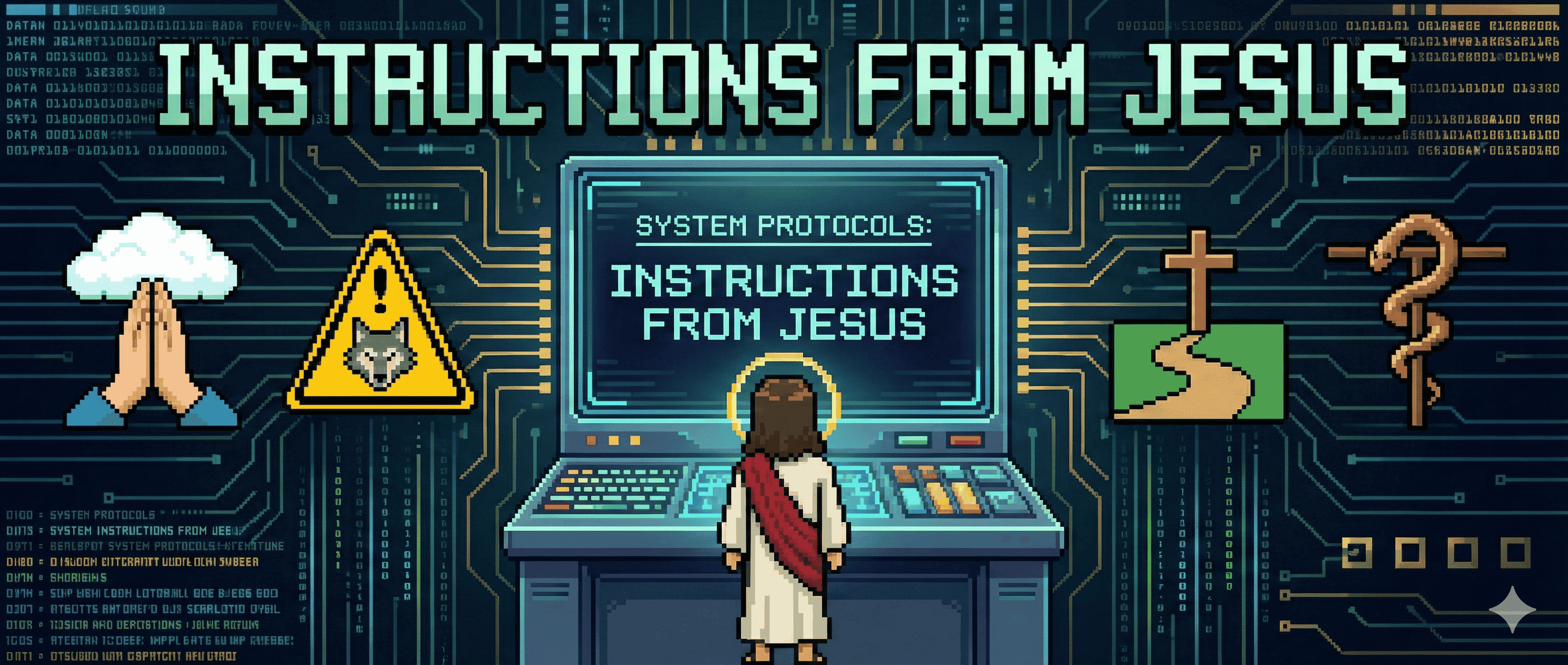Instructions from Jesus
Operating Protocols for the Kingdom of God
"And when you pray, you must not be like the hypocrites... But when you pray, go into your room and shut the door and pray to your Father who is in secret... Pray then like this: 'Our Father in heaven, hallowed be your name. Your kingdom come, your will be done, on earth as it is in heaven...'"
Matthew 6:5-13 (ESV)
COMMUNICATION PROTOCOL:
Sincerity overrides public display. The "Lord's Prayer" is the authorized template for divine communication, prioritizing His Kingdom over our immediate wants.
"Ask, and it will be given to you; seek, and you will find; knock, and it will be opened to you... If you then, who are evil, know how to give good gifts to your children, how much more will your Father who is in heaven give good things to those who ask him!"
Matthew 7:7-11 (ESV)
RESOURCE ALLOCATION:
Access is granted to those who persist. We approach with confidence, knowing the Father's nature is to provide, not to withhold.
"Beware of false prophets, who come to you in sheep’s clothing but inwardly are ravenous wolves. You will recognize them by their fruits... A healthy tree cannot bear bad fruit, nor can a diseased tree bear good fruit."
Matthew 7:15-20 (ESV)
THREAT DETECTION:
Identify hostile actors by their output (fruits). A corrupt system cannot produce righteous data. Results—not rhetoric—reveal the source.
"But you are not to be called rabbi, for you have one teacher, and you are all brothers. And call no man your father on earth... Neither be called instructors, for you have one instructor, the Christ."
Matthew 23:8-10 (ESV)
HIERARCHY CHECK:
Eliminate the intermediaries. There is only one Instructor; all human authorities are peers under the Headship of Christ.
"And as Moses lifted up the serpent in the wilderness, so must the Son of Man be lifted up, that whoever believes in him may have eternal life."
John 3:14-15 (ESV)
HISTORICAL PRECEDENT:
The Bronze Serpent (Num 21:8-9) was the prototype; the Cross is the fulfillment. The command is simple: Look and Live.
Jesus said to him, “I am the way, and the truth, and the life. No one comes to the Father except through me.”
John 14:6 (ESV)
GATEWAY EXCLUSIVITY:
Single point of entry. There are no alternate routes, backdoors, or "other ways" to the Father.
